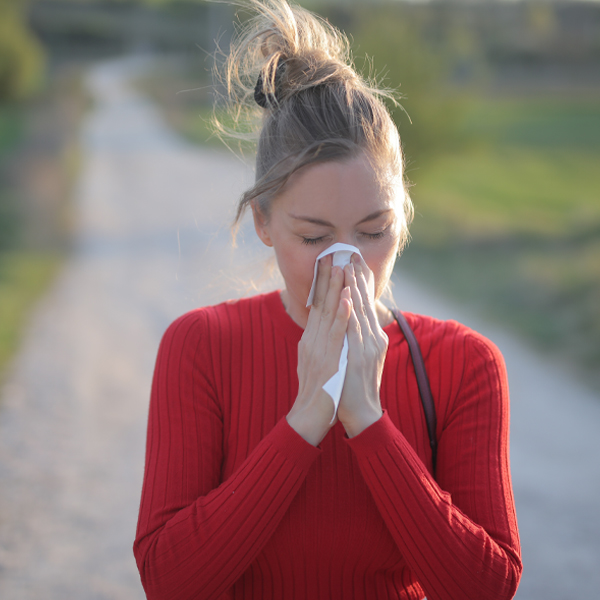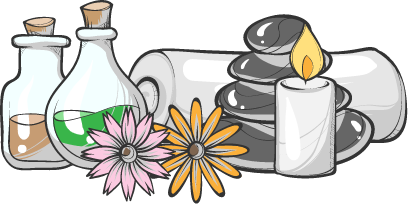Allergic Rhinitis: Overview and Ayurvedic Management
What is Allergic Rhinitis?
Allergic rhinitis is a common condition where the immune system overreacts to allergens, causing inflammation of the nasal passages. This can result in a range of symptoms including sneezing, runny or stuffy nose, itchy eyes, and a sore throat. It is often referred to as hay fever and can be triggered by various allergens such as pollen, dust mites, mold, and pet dander. Allergic rhinitis can impact quality of life and may lead to complications such as sinusitis, asthma, and sleep disturbances.

Symptoms
1. Sneezing: Frequent and uncontrollable sneezing.
2. Runny Nose: Excess mucus production leading to a clear, watery discharge.
3. Nasal Congestion: Blocked or stuffy nasal passages.
4. Itchy Eyes, Nose, or Throat: Discomfort in the nasal and ocular regions.
5. Postnasal Drip: Mucus dripping down the throat, causing cough.
6. Fatigue: Due to disrupted sleep or constant discomfort.

Causes
Allergic rhinitis is primarily caused by exposure to allergens. Key risk factors include:
1. Seasonal Pollen: Tree, grass, and weed pollen.
2. Indoor Allergens: Dust mites, mold, and pet dander.
3. Air Pollution: Exposure to environmental pollutants can exacerbate symptoms.
4. Genetics: A family history of allergies or asthma increases risk.
5. Environmental Factors: Changes in climate or exposure to irritants can trigger symptoms.
Lifestyle Changes for Allergic Rhinitis
Stress Management:
Techniques such as yoga and meditation help reduce stress and improve immune function.
Regular Exercise:
Promotes overall health, maintains weight, and supports respiratory function.
Proper Sleep:
Ensures adequate rest and aids in immune system function.
Routine Establishment:
Helps maintain balance and reduces stress on the body.
Dietary Recommendations for Allergic Rhinitis
Avoid Cold Foods:
Such as ice creams and cold drinks, as they can aggravate Kapha dosha.
Incorporate Warm Spices:
Like turmeric, ginger, and black pepper to help reduce inflammation and support respiratory health.
Increase Vegetables and Legumes:
For their high nutrient content and ability to support overall health.
BOOK APPOINTMENT
























